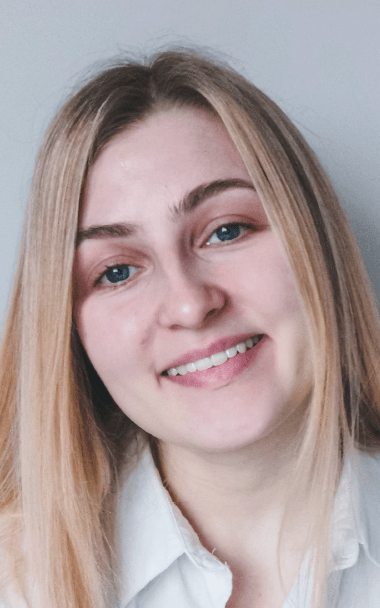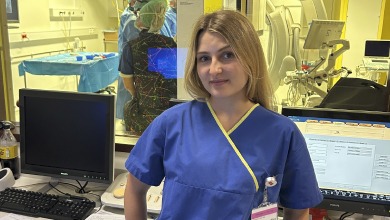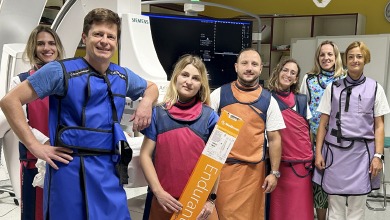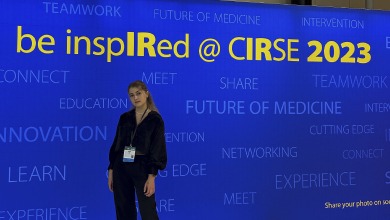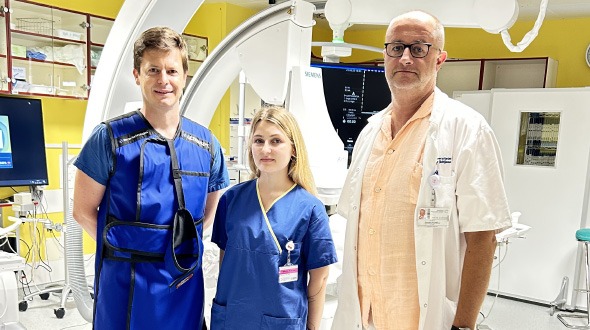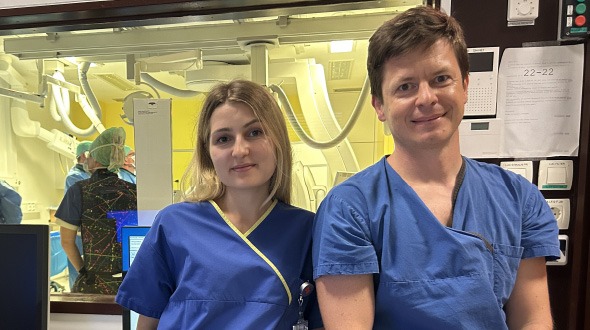Rūta Mikšytė, a fifth-year medical student at the Lithuanian University of Health Sciences, wrote to us about her time completing an internship at the UMC Ljubljana.
Student internships: Rūta Mikšytė
I had the incredible opportunity of participating in the CIRSE Student Internship Programme. This experience has been truly enlightening, and I would like to share my feedback.
As a fifth-year medical student from the Lithuanian University of Health Sciences, I’ve always been interested in radiology. However, before this internship, I hadn’t explored the interventional side of the field. CIRSE made the whole process incredibly easy and straight-forward. The team at the UMC Ljubljana was responsive and helpful with all the administrative details, which I greatly appreciated.
My stay at the UMC Ljubljana was made possible thanks to the Erasmus+ grant. Applications for the Erasmus+ grant can vary between universities, but the criteria are universal: The traineeship must be a minimum of two months in duration and agreed upon between the home university and the host institution. While universities have their own partner institutions, they also encourage students to find traineeship positions independently. During the application period, students should contact the international relations and study office at their university to explore this option.
During my two-month internship at the University Medical Centre Ljubljana in Slovenia, I had the chance to witness a wide range of IR procedures, both diagnostic and therapeutic. Among the most fascinating were the interventional oncology procedures, including transarterial chemoembolization (TACE) for hepatocellular carcinoma (HCC). The concept of delivering maximum amount of drug to the tumour while minimizing systemic exposure was both innovative and impactful. I also had the opportunity to observe liver tumour ablation procedures (CA, MWA, RFA). In addition, I observed various non – vascular and vascular procedures, such as nephrostomy, ureteric stenting, PTBD, CT/ultrasound-guided biopsies, PTA and stenting.
One particular highlight of my internship was the opportunity to observe an emergency procedure for a patient with acute thrombosis of the superior mesenteric artery and mesenteric ischemia. The rapid response and skilful execution in such a critical situation underscored the importance of interventional radiology in healthcare. From my first experience, I have seen that IR has the power to not only improve patient outcomes but also enhance their quality of life.
I also had the chance to present a case report focusing on bowel perforation consistent with Crohn’s Disease. This experience improved my ability to document and present medical cases. Additionally, I participated in research by collecting data on the measurement of ablation zones after microwave ablation of liver tumours. This exposure to research was a valuable aspect of my internship.
During my internship, I was fortunate to interact with dedicated professors, doctors, and staff who generously shared their expertise and insights. I want to express my gratitude to my mentor, Dr. Rok Dežman, whose guidance and inspiration played a pivotal role in shaping my experience during this internship. Observing my mentor’s dedication to the field, commitment to patients, and enthusiasm for teaching left a lasting impression.
With Dr. Dežman’s encouragement, I attended the CIRSE annual congress, which further enriched my knowledge of interventional radiology within a supportive academic community. The student sessions, hands-on workshops, and various activities were incredibly beneficial.
I recommend the CIRSE internship program to anyone with an interest in interventional radiology. It provides a comprehensive understanding of this field and offers valuable insights into healthcare systems in different countries.

